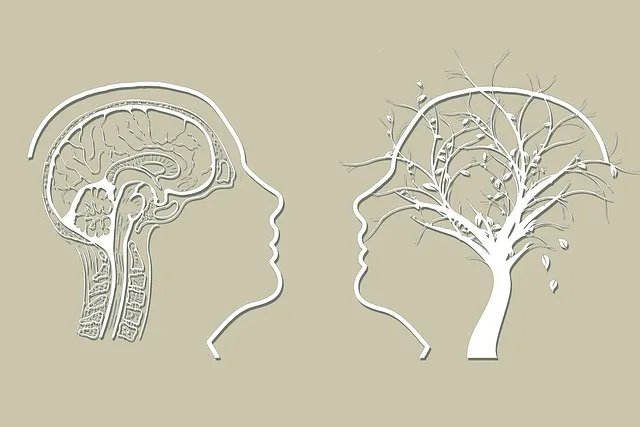Cultural competency is crucial for modern healthcare, ensuring all patients receive tailored services regardless of background. The Kaiser Permanente Mental Health Center in Arvada stands out for its commitment to diversity, offering specialized programs like Trauma Support Services and Mindfulness Meditation to cater to various cultural needs. Their comprehensive training involves Self-Awareness Exercises, Emotional Regulation techniques, and Risk Management Planning to help providers navigate complex cultural dynamics and challenging interactions effectively. Evaluating the success of these initiatives through surveys, focus groups, and follow-up studies is essential to demonstrate improved patient care, satisfaction, and outcomes for diverse populations served by Kaiser Permanente Arvada.
Healthcare provider cultural competency training is essential in today’s diverse society. This article explores the critical need for such training, using Kaiser Permanente Mental Health Center in Arvada as a case study. We delve into their commitment to diversity and how their programs equip providers with skills to offer effective care. Additionally, we discuss training strategies and methods for measuring the impact of these initiatives, emphasizing the importance of cultural competency in healthcare.
- Understanding Cultural Competency in Healthcare: A Necessary Approach
- Kaiser Permanente Arvada: A Mental Health Center's Commitment to Diversity
- Training Strategies: Equipping Providers for Effective Patient Care
- Measuring Success: Evaluating the Impact of Cultural Competency Programs
Understanding Cultural Competency in Healthcare: A Necessary Approach

Cultural competency is an essential aspect of modern healthcare, reflecting a deep understanding and appreciation of diverse cultural beliefs, values, and practices within a community. This approach ensures that healthcare services are accessible, equitable, and tailored to meet the unique needs of every patient, regardless of their background. At organizations like Kaiser Permanente Mental Health Center in Arvada, prioritizing cultural competency is not just a moral imperative but also a strategy for enhancing patient outcomes and provider satisfaction.
In light of growing cultural diversity across communities, healthcare providers must be equipped with tools to navigate complex social dynamics. This involves recognizing potential biases, learning effective communication techniques, and adopting self-care practices to prevent burnout. By integrating these concepts, mental health professionals can foster more inclusive environments, improve patient engagement, and ultimately contribute to the Mental Wellness of both patients and themselves, as supported by Burnout Prevention Strategies for Healthcare Providers.
Kaiser Permanente Arvada: A Mental Health Center's Commitment to Diversity

Kaiser Permanente Arvada Mental Health Center stands as a beacon of diversity and cultural competency within the healthcare sector. This center recognizes that providing quality care requires understanding and addressing the unique needs of every patient, especially those from diverse backgrounds. With a strong commitment to inclusivity, Kaiser Permanente Arvada offers a wide array of services tailored to various cultural and ethnic groups, ensuring that everyone receives the support they need for their mental health.
The center’s approach includes specialized programs like Trauma Support Services, which are designed to help individuals heal from past traumas. Additionally, Mindfulness Meditation sessions are conducted to promote relaxation and reduce anxiety, catering to diverse preferences in mental wellness practices. These initiatives reflect the center’s dedication to providing not just treatment but a holistic sense of healing, making Kaiser Permanente Arvada a premier destination for mental health care, particularly for communities seeking culturally sensitive services, including those struggling with Anxiety Relief.
Training Strategies: Equipping Providers for Effective Patient Care

Effective cultural competency training for healthcare providers involves a multi-faceted approach that goes beyond superficial understanding. At Kaiser Permanente mental health centers like Arvada, the focus is on deep Self-Awareness Exercises that foster empathy and understanding of diverse patient backgrounds. These exercises encourage providers to explore their own biases, assumptions, and emotional reactions, enhancing their ability to connect with patients from different cultural perspectives.
Incorporating practices such as Emotional Regulation techniques allows mental health professionals to manage stress and maintain composure during challenging interactions. Moreover, Risk Management Planning becomes integral to addressing potential ethical dilemmas or adverse events, ensuring providers are equipped not just for day-to-day care but also for navigating complex situations with cultural sensitivity.
Measuring Success: Evaluating the Impact of Cultural Competency Programs

Evaluating the success of cultural competency training is a vital step in ensuring its effectiveness and impact on patient care, especially within diverse healthcare settings like the Kaiser Permanente mental health center in Arvada. Measuring success goes beyond simple participation; it involves assessing how well these programs equip mental health professionals with the skills to navigate complex cultural landscapes. This includes gauging improvements in their ability to understand and respect patient backgrounds, beliefs, and values, which can significantly enhance therapy outcomes.
The impact of these initiatives can be assessed using various methods, such as pre-post training surveys, focus groups, and long-term follow-up studies. For example, the Kaiser Permanente program could introduce a Risk Assessment for Mental Health Professionals to gauge improvements in cultural awareness and apply Mind Over Matter Principles to boost confidence in managing diverse patient populations. Ultimately, these evaluations should show improved client satisfaction, better adherence to treatment plans, and more positive outcomes, demonstrating the value of cultural competency training.
Cultural competency training in healthcare, as demonstrated by Kaiser Permanente Mental Health Center Arvada’s dedication and successful programs, is an indispensable tool for fostering inclusive care. By equipping providers with strategies to navigate diverse patient backgrounds, these initiatives ensure improved outcomes and stronger patient-provider relationships. As highlighted through measuring success, investing in cultural competency enhances the overall quality of healthcare services, reflecting a commitment to equity and accessibility for all, particularly within vibrant communities like Arvada.






